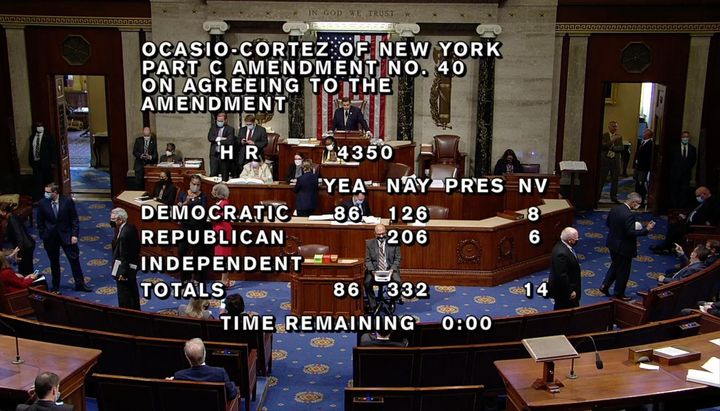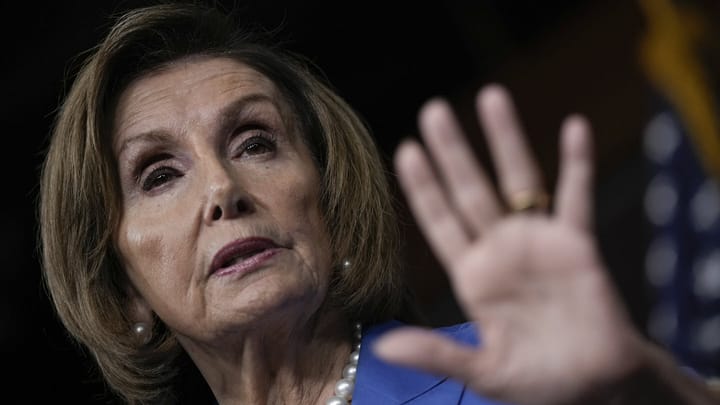The House of Representatives on Thursday voted overwhelmingly to reject two amendments that would have reduced the military’s budget for 2022—one to cut it by 10 percent and another that would have lopped off just 3 percent. Republicans voted unanimously against both measures, while the Democratic caucus split on both.
With neither amendment passing, the National Defense Authorization Act (NDAA) for Fiscal Year 2022 authorizes $768.1 billion in discretionary funding for the Department of Defense, as well as military activities conducted at the Department of Energy and other agencies. The bill, which was passed 316-113, increases military spending by $36.5 billion above the amount that was authorized by the 2021 NDAA, which included the authorization of billions in overseas contingency operations funding that is not included in the current bill.
The amendment to cut the budget by 10 percent, which was offered by Rep. Alexandria Ocasio-Cortez, was rejected by a vote of 86-332. It would have applied a 10% reduction to all the accounts and funds authorized by the NDAA besides those for the Defense Health program, military personnel, and civilian employee pay.
The Democrats who voted against the 10 percent reduction in the Pentagon budget have received, on average, 3.7 times more money in the form of campaign contributions from the defense sector since January 2019, according to an analysis of OpenSecrets data by the Security Policy Reform Institute and Sludge. The average amount of defense cash received by Democrats who opposed the amendment was $60,680, while the Democrats who supported it received an average of $16,497 from the industry. Funding from the defense sector as defined by OpenSecrets includes contributions from the PACs of Defense Department contractors like Raytheon and Lockheed Martin, as well as donations larger than $250 from those companies’ employees.
The vote was a step backwards for House progressives. Last year, an identical amendment was put forward and it received 93 votes in favor, seven more than it received yesterday. Nine Democrats switched from supporting the 10 percent reduction last year to opposing it this year: Emanuel Cleaver (Mo.), Dwight Evans (Pa.), Al Green (Texas), Bill Keating (Mass.), Robin Kelly (Ill.), Stephen Lynch (Mass.), Richard Neal (Mass.), Brad Sherman (Calif.), and Bennie Thompson (Miss.).



